Solar-powered robotic vessel could vacuum plastic waste out of the ocean

It is called Seavax and could collect from deadly micro particles to huge fishing nets!
It is called Seavax and could collect from deadly micro particles to huge fishing nets!
Plastic pollution is threating ocean life and estimations show there could be more plastic than fish in our seas by 2050. Seavax, a solar and wind-powered vessel which filters sea water and collects plastic waste floating in the open sea, could improve this situation!
The idea was conceived by a group of engineers from Sussex, UK who founded Bluebird Marine Systems LTD (BMS) almost 5 years ago. Their vessel, unveiled last November at the government-funded Innovate UK in London, has passed proof-of-concept stage and is now entering the prototype phase. The inventors are on search of funding in order to get a full size demonstrator in the water, for further testing and the completion of a feasibility study. Once an improved patent is granted, the project will have taken $195,000 (£138,000) and a year to develop. “Much of what is available depends on match-funding and that is not something with our set-up we can deliver at present. Had we been in California it might have been easier’’, says project director Chris Close.
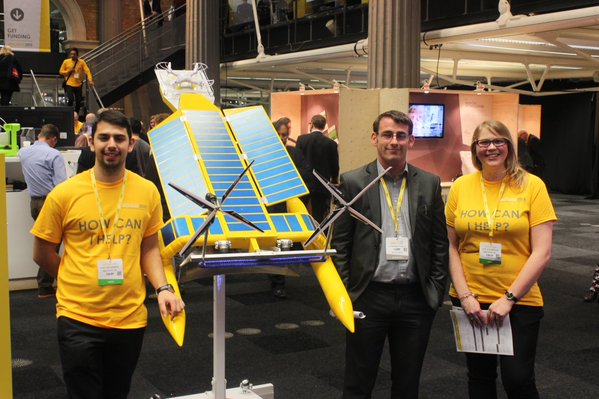
Characteristics
Seavax will have a roaming, satellite-controlled aluminium platform, and will be equipped with deck-mounted solar panels and 2 wind turbines, which will power the electric pumps and filters. There will also be an on-board shredder to cut up larger pieces. The 50 m long (160 ft) vessel could store up to 150 tns of plastic in its tank, until it can be off-loaded. Sensors will detect waste and sonar technology will protect marine and bird life from getting caught (an automatic shutdown is scheduled when marine life is detected).
Efficiency
The inventors estimate that SeaVax could generate enough energy to treat almost 90000 m3 of seawater per year, meaning 22500 tns of plastic when used in water with high concentrations of surface solid plastic (ex. rivers).
Future potential
SeaVax could also be equipped with an oil spill recovery module and ideally it could switch from plastic to fluid oil recovery, depending on the ocean threat. Bluebird Marine Systems has already received interest from people in India trying to develop a clean-up solution for the polluted Ganges River, and also from Nigeria and Australia regarding the device’s potential for oil cleanup.
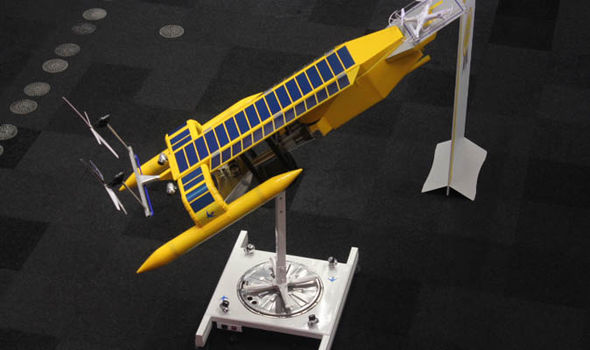
Needless to say, our main focus should still be on addressing the root cause of the problem, plastic creation and usage. But innovations like these can help mitigate the damage we have already done!
Want to read more like this story?

The plastic pollution problem in charts
Dec, 11, 2017 | NewsThe total volume of all plastic ever produced has been calculated at 8.3 bn tonnes (the equival...
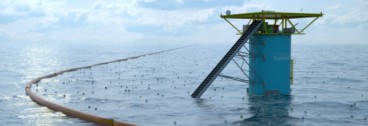
A floating structure aims to pull plastic from the world’s oceans
Jun, 10, 2016 | NewsThe project’s next big target is the obliteration of the Great Pacific Garbage Patch The pr...
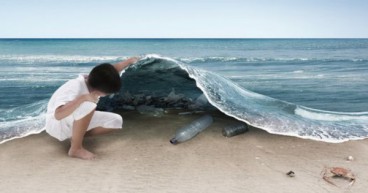
By 2050, there could be more plastics than fish in the oceans!
Mar, 04, 2016 | NewsIn a business-as-usual scenario, the ocean is expected to contain 1 ton of plastic for every 3 tons...
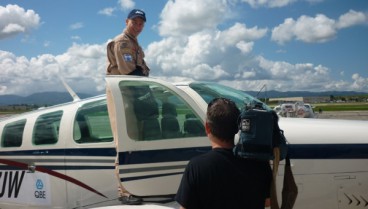
A light aircraft flew more than 500 miles using fuel partially originated from plastic waste
Mar, 08, 2017 | NewsThe initiative ‘On Wings of Waste’ aims to raise awareness about plastic waste recycling...
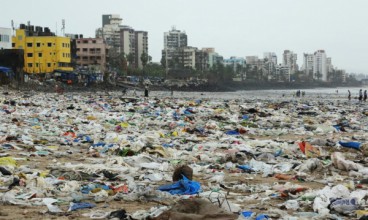
Indonesia pledges $1 billion annually to tackle ocean pollution
Mar, 22, 2017 | NewsThe country is the second largest plastic polluter in the world after China The country is the se...
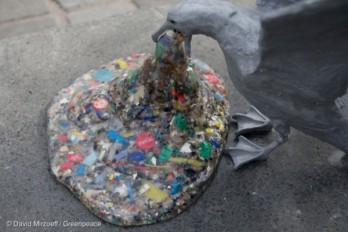
A sculpture outside London’s National Theater highlights the issue of plastic pollution in our oceans
Apr, 26, 2017 | NewsThe work of the renowned marine sculptor Jason deCaires Taylor is called ‘Plasticide’...
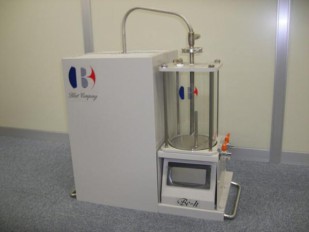
This machine produces oil from plastic waste
Mar, 31, 2017 | NewsA household appliance that converts plastic bags into fuel was invented by a Japanese man A house...
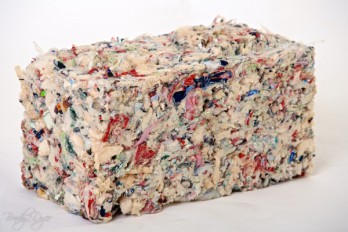
Building houses out of plastic waste
Sep, 19, 2016 | NewsA portable machine turns used plastic into bricks A portable machine turns used plastic into bric...
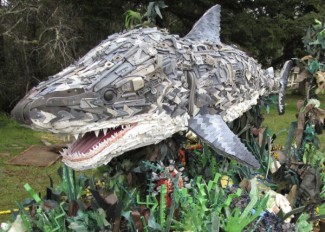
Giant sculptures made entirely out of plastic found on our beaches
Apr, 13, 2016 | NewsTime to reconsider the use and end-of-life management of plastic Time to reconsider the use and e...
Trending
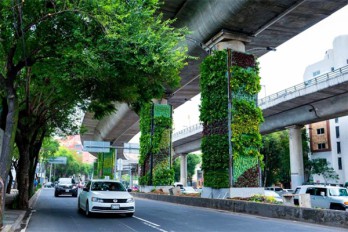
Vertical gardens in Mexico City to combat pollution

Saudi Park Closed After 360 Big Pendulum Ride Crashes to Ground, 23 injured

Characteristics of Load Bearing Masonry Construction

Taipei 101’s impressive tuned mass damper
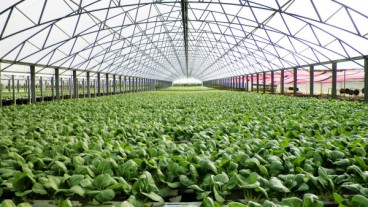
Dutch greenhouses have revolutionized modern farming

Federal court rules Biden’s offshore drilling ban unlawful


